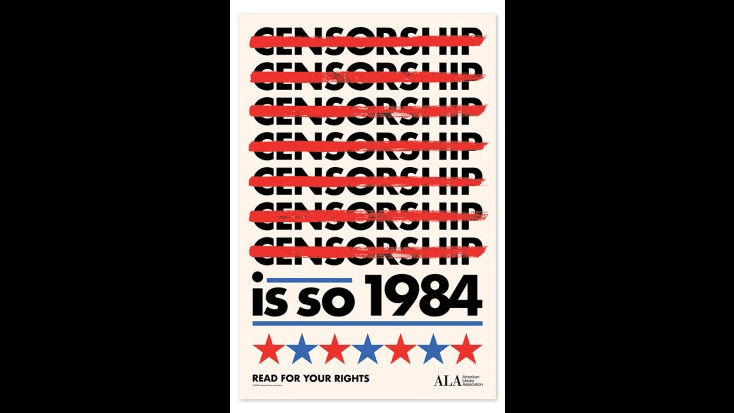Today we’ve got nonfiction about the four corners of Minnesota and a child’s-eye memoir of life in the foreign service, as well as a horrifying novel about an attack on the U.S.
“Greater Minnesota“: by Patrick Hicks (Indiana University Press, $25)
(Courtesy of Indiana University Press)
This book is part travelogue, part history book, and part discovery of new places. What makes the North Shore, the Iron Range, and all those lakes so quintessentially Minnesotan? In many ways this book is an excuse to visit places I’ve heard about all my life, and it also offers me a chance to consider my state’s identity. — from “Greater Minnesota”
After years of living in Europe, Hicks came home to explore places outside the Twin Cities (plus a tribute to the State Fair in Falcon Heights). In his book, subtitled “Exploring the Land of Sky-Blue Waters,” Hicks travels from his hometown of Stillwater to Duluth and the North Shore, St. John’s University in Collegeville, the Iron Range (Hibbing and Bob Dylan), Southwest (Pipestone and ancient rock carvings), Up North (Brainerd, Bemidji), and Southeast (Rochester’s Mayo Clinic and Spam in Austin).
From farmland to forest, Hicks treats us to conversations with folks who live in these areas, giving a real feel for their devotion to their places in Minnesota.
Hicks, writer-in-residence at Augustana University in Sioux Falls, S.D., is the author of more than 10 books, including his acclaimed novel of the Holocaust “The Commandant of Lubizec.” He’s also a poet and essayist, talents that come together in his chapter about attending the Minnesota State Fair. Besides sharing snacks with his sister and visiting all the usual attractions (the giant boar was sleeping), the Great Minnesota Get-Together leads to Hicks’ interesting musing about our state:
“When asked where they are from while visiting another part of the United States, most Minnesotans won’t initially say Minneapolis or St. Paul, or Rochester — they’ll say ‘Minnesota.’ There is a sense of belonging to the state first and the city where you actually live second. If you asked someone from, say, Chicago or Boston where they’re from, they will likely name the city first, not the state. Maybe it’s for this reason that none of our professional sports teams come from a specific city… Our teams represent the entire state.”
Whether you love the State Fair, enjoy in-state travel or want to learn more Minnesota history, this book is for you.
“Embassy Kid”: by J.K. Anderson Lopez, illustrations by Camila Acosta Sanchez (Westphalia Press, $14.68)
(Courtesy of Westphalia Press)
In a process that I would repeat seven times in the years to come, I relinquished my hold on the present. When it came time to go, you simply went. You did not protest. You did not look back. You moved on. — from “Embassy Kid”
Subtitled “An American Foreign Service Family Memoir,” this book is written for the Association for Diplomatic Studies and Training to commemorate the centennial of the U.S. foreign service. It honors, the author writes, “men, women, and children who serve their country abroad in order to represent our ideals.”
“There has never been a more important time to shed a light on these American patriots,” she writes.
Lopez tells the intimate story of her family’s life as her dad, Robert Anderson, worked his way up the ranks with diplomatic jobs in the USIA (US Information Agency) during the Cold War. The author and her younger sister Susan grew up in Caracas; Milan, Bologna and Rome in Italy; Bogota; Rockville, Md.; and Spain. While this might seem glamorous and exciting to adults, for children of embassy staff the constant moves could be heartbreaking, as when the girls said a tearful goodbye to the woman in Caracas who’d been their caretaker in their early years. It was their mother, Nancy, who made their moves smoothly and taught her daughters the strict behavior expected of embassy kids.
The girls learned to be resilient, learning Spanish and some Italian, but that wasn’t always great either. Every time they moved, the author, whose name is Jane, reinvented herself depending upon the language where they were living — Janie, Giovanna, Juanita and finally Kelly. And when they returned to the U.S. to spend several years in Maryland, Lopez hid her facility with languages so she fit in and wouldn’t be considered a nerd.
Fun came when the family was on leave and drove to Winona to visit her mother’s family and to South Dakota, where her Dad’s people had a farm. In one funny anecdote, Lopez, raised on hot-climate fruits, watches her dad put lots of butter on his mashed potatoes and reflects that they put milk, cream and butter on everything in South Dakota.
J.K. Amerson Lopez (Courtesy of the author)
But the author also enjoyed witnessing visits by leaders of countries and high-ranking U.S. officials from 1955 to 1974.
Lopez also writes of changing times in the foreign service. Her mother always considered herself her husband’s partner, acting as leader of the embassy wives and mentor to the newcomers, volunteering wherever they were stationed and happily hosting events. Later, some new foreign service wives wanted their own lives without feeling an obligation to their husbands’ jobs, and the traditional ways of doing things became less rigid.
After a miserable time in college, Lopez followed in her mother’s footsteps and became a dancer in New York, where she met her husband. They live in South Florida but she has extended family in the Twin Cities.
Written in a friendly voice, this is one of the first foreign service memoirs written from a child’s point of view about one of the most turbulent decades in U.S. history.
“The Electronic Tsunami“: by R. Michael Conley (Beaver’s Pond Press, ($24.95)
(Courtesy of Beaver’s Pond Press)
Invictus Shilova was bouncing off the walls with joy as reports from the EMP bombing started to dominate the media news. It was the crowning achievement of his entire criminal career… he, a man of unequaled genius, could substantially paralyze the most powerful nation in the world with the greatest, most ingenious asymmetric attack ever planned and executed in the history of mankind. — from “The Electronic Tsunami”
How could an enemy of America kill millions of citizens without destroying a single building? By attacking the electronic infrastructure in New York City. That’s the chilling warning in this exciting novel set in 2029.
A criminal international arms trafficker, who employs a feared assassin, hates the United States. Through a liaison with North Korea, he uses his brilliant specialist in cybercrime to create a plan that will fry the electrical grid in and around New York City with two bombs launched from a boat. In an instant the nation is paralyzed with airplanes crashing as they lose contact with control towers, seniors dying in high-rises with no food, water or heat, a tangle of dead cars in Manhattan so deep that rescue vehicles can’t get through, and overwhelmed hospitals running on generators.
The story is told from several viewpoints, including the U.S. president who needs to tap down his PTSD after serving in Iraq, representatives of China (now a tentative American ally), North Korea, and the monster who sets it all in motion. Tension mounts as we see the perpetrators planning the attack, and the aftermath in which the decent man who leads the country faces the huge job of rallying his country as Franklin Roosevelt did at the start of World War II.
Conley helps the reader understand the attack with a lot of dialogue between the president and his Cabinet and generals. Although they don’t know the identity of the attackers, they know it took just two EMP missiles with nuclear heads to quietly accomplish the enemy’s goal of destroying America.
The author skillfully weaves into the story the effects of climate change, AI, shifting relations with other countries and our lack of readiness for this kind of attack.
Conley told his publisher: “This book is fiction. It is not science fiction. The weapons all exist, and the clock is ticking. The dazzling new technologies have surpassed our capacity to digest and understand them, and this assimilation gap has rendered us vulnerable to the bad guys out there. I hope my book will entertain and open readers’ eyes to the threats and what is truly at stake.”
The author is former chairman and CEO of the Conley Foundation and founder of Weathering the Storm. A graduate of the University of Minnesota, his previous books include “Mortgaging the American Dream” and the novel “Lethal Trajectories.”
Literary calendar for week of Oct. 5
Literary pick for week of Oct. 5: National Banned Books Week
The badass return of crime novels by Nicola Griffith and Elizabeth Hand
How celebrity book clubs are using their platform to inspire a love of reading
Stephen King is the most banned author in US schools, PEN report says




